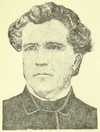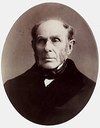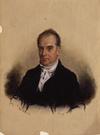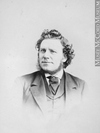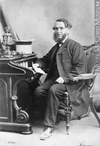Hincks*: “He and I have been like brothers for so many years that I find it hard to part from him.” Because of his work for the Grand Trunk Railway Company his associations also extended to the
until 1854. On 16 Aug. 1853 he was appointed speaker of the Legislative Council, holding that office till the fall of the Francis Hincks
Hincks who, as he acknowledged, possessed an invaluable knowledge of the past, being the last leading politician of the 1840s still alive. Hincks, moreover, had a keen interest in
investment and his interest in the expansion of Toronto’s commerce led to his involvement, with Francis Hincks*, in a celebrated conflict of interest
*, but he was the only one to hold a seat on the Executive Council. On the suggestion of Francis Hincks*, La Fontaine offered him a post as
Hincks* in Montreal in 1844 – the same year George Brown* founded the Globe in Toronto. He was a leading contributor to the
Baldwin* and Francis Hincks*, he had orchestrated reform opinion in Oxford County through petitions, informal canvassing, public meetings, and
an independent Conservative, Wilson found himself allied with Francis Hincks* and his Reformers. When Hincks’ government resigned in
Hincks*. Beaty was important enough in boosting and perhaps, at times, financing Hincks in the 1840s to put the latter clearly in his political debt
important to reform. That status was enhanced by his reputation as a man of principle. Francis Hincks*, a neighbour, intimate friend, and banker to
Hincks an interest in establishing a public school system. Morrison was appointed to the Board of Education (which became the Council of Public Instruction in 1850) when it first met in 1843 and
Richards*.
An admirer of co-premier Francis Hincks*, Cameron worked in his campaign in the
Morin*; the next day, 26 April, on the Champ de Mars, when the rioters were assembling to launch an attack on the homes of Francis Hincks
. Neilson battled against Francis Hincks* and Robert Baldwin*. On 18 May 1847
Public Works and in 1852 a clerk in the customs branch of the department of the inspector-general, Francis Hincks*, a cousin who often helped
Hincks and Augustin-Norbert Morin*. But in June 1854 he was one of seven members forming a group around Joseph-Édouard
About Duplicate Matches







